- Home
- Katrina Kahler
Early Readers - Dex The Dog Goes To The Farm - A Learn To Read Picture Book for Beginner Readers Page 2
Early Readers - Dex The Dog Goes To The Farm - A Learn To Read Picture Book for Beginner Readers Read online
Page 2
My Dinosaur Is Scared! - 12 Rhyming Stories For Young Children
A great rhyming book that
helps to solve common problems and fears.
Bonus Section:
How to Teach Your Child to Be A Better Reader
Tips for Modeling Reading to Your Child
1. Read in front of your child and show how you enjoy reading a variety of books, magazines and newspapers.
2. Talk to your child about the interesting things you have read about. They need to see reading has a purpose and that reading can bring about enjoyment.
3. When reading to your child, model how to read fluently and with expression. Try to make your reading sound like “talking”.
4. Read to your child every day and get them to read back to you. Do this in a relaxing and happy atmosphere.
The more they practice reading, the better they will become.
Prior Knowledge of the Subject is Essential!
Fluent readers use their prior knowledge of the subject they are reading about to help them make sense of the text. Reading strategies help them to predict ahead when they are reading.
Independent readers’ eyes don’t focus on every word on a page. They only focus on 1 in 6 words, so predicting ahead is very important to develop a fluent reading style, reading speed and comprehension skills.
Even as an independent reader, if you had to read a surgeon’s manual on how to remove a kidney, you would find this almost impossible to read (unless you are a doctor) because you wouldn’t understand the procedures and the words that surgeons use.
The same thing would happen to me if I had to replace something in my car, e.g. a clutch. Now I would consider myself to be a proficient reader, but I have very little knowledge of mechanics. So my comprehension of a mechanic’s manual would be very poor. I would have to heavily rely on the strategies listed above to understand instructions meant for a mechanic.
This is because I have very little prior knowledge of this subject. However, a mechanic would have little difficulty reading this type of document. I would have to reread sections, sound out words and use pictures and diagrams to help me understand the text.
So make sure your child has some prior knowledge of the topic they are reading about and that they know which reading strategies to use to help them read the text.
How Should You Go About “Home Reading” with Beginning Readers?
Talking about the book with your child before, during and after they have read is an essential part of their learning. It allows them to make connections and improves their ability to read for comprehension.
Step 1
Discuss the cover, illustrations and title. See if they can predict what the story will be about.
Step 2
Look through the book together.
Point out difficult words and show your child how to sound them out (if that is possible). Get them to sound the words out too.
Step 3
Ask the child to read the book.
As they read, occasionally ask questions like:
What is happening now?
What will happen next?
IF THEY STOP ON A WORD…
Give them a few seconds to try and work out what the word says.
Encourage them to have a guess.
(Praise their attempts!)
If they can’t work it out, tell them the word and move on.
Step 4
Write down the words they got wrong on flash cards.
Cut up the cards and ask your child to put the letters/or parts back together again.
Step 5
Next Night – read the same book again.
This book becomes a familiar book. Rereading it will improve their confidence and help their oral reading of text to be more phrased and fluent.
After they read a book, talk to them about it.
Step 6
Discuss the book with your child.
What type of things can you discuss with a beginning reader after a reading session?
Always remember to be positive and encourage the joy of reading in your home.
Reading Strategies
What do you do if your child says a word that doesn’t make sense?
Let them read on for a couple of sentences – they may stop and return to the incorrect word and correct it or reread the passage.
However, if they don’t stop – stop them and ask, “Did that make sense?”
Return to the word and help your child to use strategies to work out what the word says.
Strategies include:
• Read on and return to the word at the end of the sentence or paragraph.
• Reread the sentence.
• Make a sensible guess or prediction.
• Look for picture/photo/diagram clues.
• Sound the word out.
• Look for smaller words in the word.
• Ignore the word if it isn’t important and read on, e.g. a hard to pronounce person’s name or a place.
How to Ensure that Your Child is Reading for Understanding or Comprehension:
Many parents think that simply listening to their child read is enough, but in actual fact without developing reading comprehension skills, they will never be an effective reader.
Many children appear to be excellent readers but if they have poor reading comprehension skills then this will have a huge impact on absolutely everything they read, not just in English but all other subjects as well. They can appear to be perfect readers, they say all the right words, but when you ask them what the page was about, they have no idea.
Poor reading comprehension can be a disaster for a child’s education particularly as they get into the higher primary school years and high school. Effective reading comprehension skills are essential if children are going to work to their best potential and achieve the best grades possible.
Parents should listen to their child read from a very early age but the things they do with their children before, during and after reading are very important.
All of the strategies listed here will assist in developing good reading comprehension skills.
***
Thank you for buying this book for your child. I hope that you and your child enjoyed it and that you also found it helpful in teaching your child to read.
If you liked this book, I would really appreciate a short review. Look out for more Dex The Dog books and my other Early Reader Books on Amazon.
Best Wishes
Katrina Kahler
B Ed, 30 years Elementary teaching experience, National Inspirational Teacher Nomination
Our appreciation to
https://www.wpclipart.com
for their wonderful clipart.

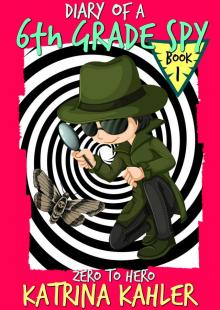 Diary of a 6th Grade Spy - Book 1 - Zero to Hero
Diary of a 6th Grade Spy - Book 1 - Zero to Hero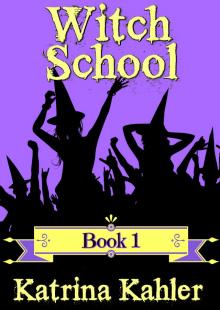 Books for Girls - Witch School - Book 1
Books for Girls - Witch School - Book 1 Julia Jones - The Teenage Years: Book 1- Falling Apart - A book for teenage girls
Julia Jones - The Teenage Years: Book 1- Falling Apart - A book for teenage girls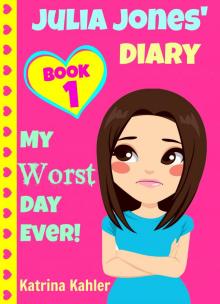 Julia Jones' Diary - Book 1: My Worst Day Ever! An Exciting and Inspiring Book for Girls
Julia Jones' Diary - Book 1: My Worst Day Ever! An Exciting and Inspiring Book for Girls Angel Book 1 - Guardian
Angel Book 1 - Guardian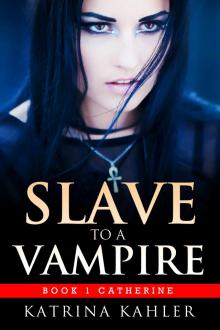 Slave to a Vampire - Book 1 Catherine
Slave to a Vampire - Book 1 Catherine Early Readers - Dex The Dog Goes To The Farm - A Learn To Read Picture Book for Beginner Readers
Early Readers - Dex The Dog Goes To The Farm - A Learn To Read Picture Book for Beginner Readers Boyfriends and Best Friends Forever!
Boyfriends and Best Friends Forever!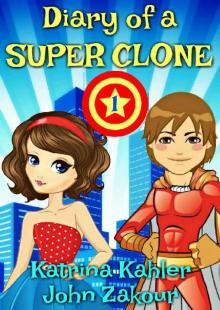 The Battle
The Battle Family Ties
Family Ties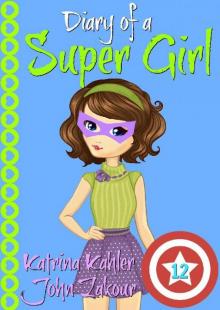 The Invasion
The Invasion My Crazy Life
My Crazy Life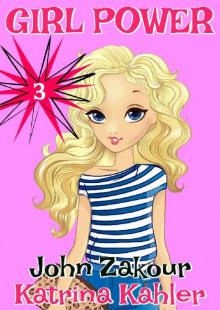 The True Enemy
The True Enemy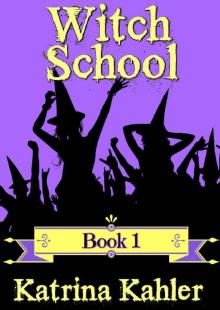 WITCH SCHOOL - Book 1 (Books for Girls - WITCH SCHOOL)
WITCH SCHOOL - Book 1 (Books for Girls - WITCH SCHOOL)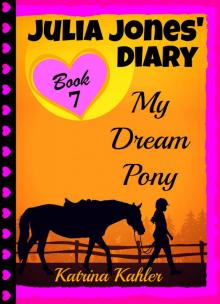 My Dream Pony
My Dream Pony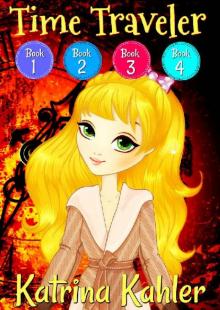 Time Traveler - Books 1, 2, 3 & 4: Books for Girls aged 9-12
Time Traveler - Books 1, 2, 3 & 4: Books for Girls aged 9-12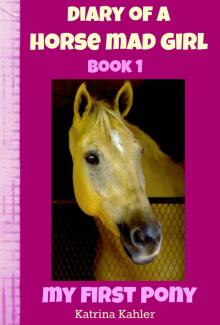 Diary of a Horse Mad Girl: My First Pony - Book 1 - A Perfect Horse Book for Girls aged 9 to 12
Diary of a Horse Mad Girl: My First Pony - Book 1 - A Perfect Horse Book for Girls aged 9 to 12 Dream Pony Frenzy
Dream Pony Frenzy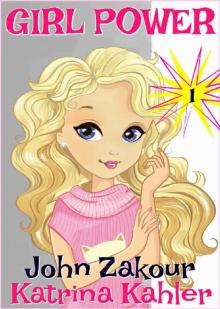 Girl to the Rescue!
Girl to the Rescue! Under Attack
Under Attack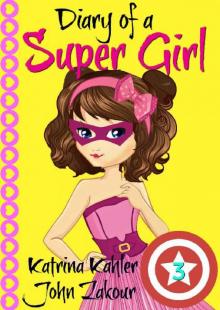 The Power of Teamwork!
The Power of Teamwork!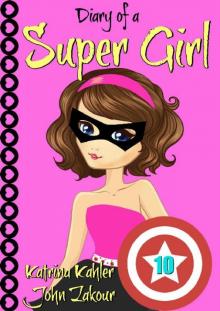 More Trouble!
More Trouble! It's Never Dull
It's Never Dull Families
Families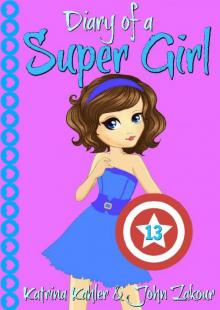 True Love!
True Love! The Ups and Downs of Being Super
The Ups and Downs of Being Super The New Normal
The New Normal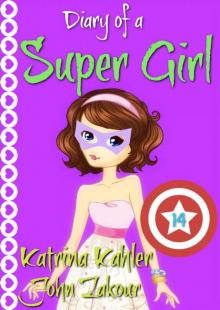 Love Battle
Love Battle Zara, The Ghost Zapper
Zara, The Ghost Zapper The Super Ghost
The Super Ghost Julia Jones - The Teenage Years: Boxed Set - Books 2, 3 and 4
Julia Jones - The Teenage Years: Boxed Set - Books 2, 3 and 4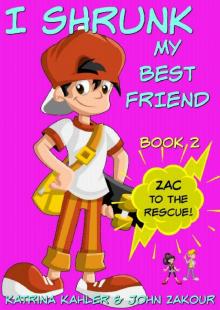 Zac to the Rescue!
Zac to the Rescue! End Game
End Game Books for Girls - WITCH SCHOOL - Books 2-6: Book 1 is FREE!
Books for Girls - WITCH SCHOOL - Books 2-6: Book 1 is FREE! Good versus Evil!
Good versus Evil! The Expanding World
The Expanding World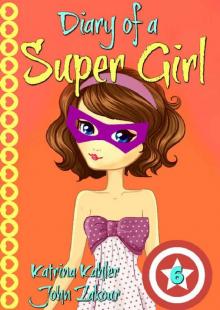 Saving the World
Saving the World Rivals
Rivals Out of this World
Out of this World SV02-06. Slave to a Vampire
SV02-06. Slave to a Vampire